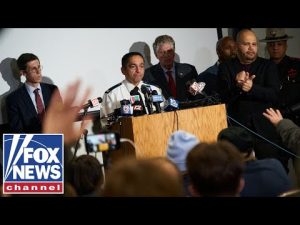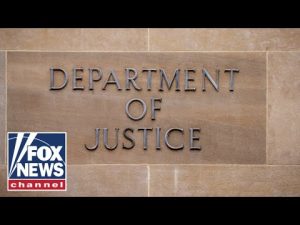Recently, the nation has been gripped by the chaos surrounding a series of troubling incidents, including a major attack in New Orleans that has left many wondering about the safety and preparedness of American cities. As investigations unfold, former New York City Mayor Rudy Giuliani has shared insights drawn from his own experiences during the tumultuous days following September 11th, a time when America faced unimaginable terror. Giuliani, often hailed as “America’s Mayor,” emphasized the importance of unity and a clear chain of command in dealing with such crises. It’s a lesson that rings true now more than ever.
Giuliani painted a picture of the current situation as one that likely involves more than just isolated attacks. The presence of a black flag and unexploded devices indicates a well-planned operation, possibly tied to a broader network of individuals involved in acts of terrorism. However, Giuliani highlighted a troubling trend he observed during his time leading New York City: the difficulty in openly identifying the enemy. He lamented that current administrations might hesitate to label these threats as “Islamic extremist terrorism,” and he believes this lack of direct acknowledgment makes it harder to confront and dismantle such groups. Naming the enemy, he argues, is crucial in the fight against terrorism.
The former mayor also raised eyebrows regarding security measures, specifically in relation to the Sugar Bowl, which draws massive crowds. Given the fanfare and attention associated with such an event, one might expect that security preparations would be at the forefront. Giuliani suggested that New Orleans, while traditionally sporting its festive aura, might not have taken adequately proactive measures ahead of the celebration in light of past threats. He pointed out that major cities should continually assess their security protocols, especially when large gatherings are on the horizon.
Looking back at his own tenure, Giuliani spoke of the extensive preparations that New York underwent after the 1993 World Trade Center bombing. From the establishment of an Office of Emergency Management to regular emergency drills, the emphasis was on being ready for potential attacks. Giuliani expressed that underestimating the importance of preparation could lead to catastrophic consequences, a lesson any major city should heed. It is worth noting that even the most prepared cities can be caught off guard if they do not maintain vigilant security practices.
As this story continues to develop, Giuliani’s words remind us that cities must foster cooperation among various law enforcement and emergency agencies, ensuring everyone is on the same page. While the current investigation is ongoing and facts may shift as new information emerges, one thing remains clear: America must be ready to face its challenges head-on. In times of crisis, clarity, preparation, and naming the enemy are vital. If we take these lessons to heart, cities across America can hope to mitigate the risk of future attacks and secure a safer environment for all.







